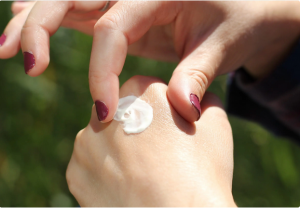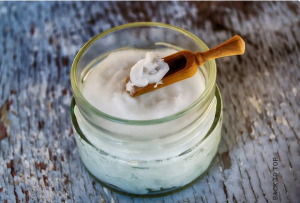While often confused as the same thing, dandruff and dry scalps are actually two distinct conditions. That being said, dandruff and dry scalps may sometimes share symptoms. For that reason, it’s especially important to be able to discern the differences between the two in order to come up with an effective treatment plan.
What’s the difference?
Let’s start with the basics. A dry scalp is just what it sounds like: a scalp that is dry. Now, this could be due to a variety of reasons, such as:
- Overwashing
Washing your hair too often can strip both your hair and scalp from sebum (the natural oil produced by your scalp) and nutrients they need to stay healthy and hydrated. How do you figure out how often to wash your hair? Everyone is different, but generally you should wash your hair more often if you have finer hair or oilier skin, and less often if you have coarser hair or drier skin. - Using certain hair products
Harsh hair or scalp products can wreak havoc on your scalp, so try to opt for gentler ones with mild formulas instead. Also, if you experience any redness, flakiness, or irritation on your scalp after using a product, you could be experiencing contact dermatitis or an allergic reaction to one (or more) of the product’s ingredients. - Naturally dry skin
If you have naturally dry skin, you may be more prone to developing a dry scalp as well. - Weather changes
Just like the rest of your skin can get drier during winter, so can your scalp. - A medical condition
You could be experiencing a dry scalp as a symptom of a medical condition, such as eczema or scalp psoriasis. In this case, things can get a little more complicated, as caring for your scalp might involve using treatments specific to your condition or avoiding triggers that lead to flare ups.
Dandruff, on the other hand, refers to an itchy or irritated scalp that is shedding skin flakes, leaving those notorious white bits in your hair. The root cause of dandruff is still under investigation, though there is a strong link between dandruff and sensitivity to Malassezia yeast (unrelated to the yeast in baked goods!), a fungus living on the scalp . In most people, this fungus is a normal part of the skin’s microbiome and causes no issues, but some individuals are sensitive to Malassezia and may experience dandruff and seborrheic dermatitis as a result .
Other factors can cause or contribute to dandruff as well. For example, a dry scalp itself can sometimes lead to dandruff. Other reasons you may experience dandruff include:
- Naturally dry skin, overwashing, or certain products
Like dry scalps, dandruff can also be caused or exacerbated by these. - Having oily skin
Though it may seem contradictory, dandruff can actually be caused by oily skin OR dry skin. This is because Malassezia feeds and thrives on the natural oils produced by your scalp. Excess sebum means more Malassezia, which can then lead to worsened dandruff. - Genetic predisposition
Dandruff can have a hereditary component, as it tends to run in families . - A medical condition
Dandruff can be a symptom of a medical condition, such as seborrheic dermatitis, eczema, or psoriasis.
Contrary to popular belief, dandruff is NOT caused by poor hygiene, although shampooing less frequently might make the little white flakes appear more apparent, especially in darker hair.
What can I do?
Whether you have dandruff or just suffer from a dry scalp, addressing your condition successfully depends on understanding the cause. For example, dandruff caused by a dry scalp could be ameliorated by using a scalp lotion or moisturiser, but if your dandruff is caused by oily skin, a scalp lotion would just make things worse!
In general, using a scalp lotion or moisturiser can be a great way to rehydrate and nourish a dry scalp. For a high-quality scalp lotion made with natural ingredients, check out Alpinia’s Frankincense Scalp Lotion, which was developed especially for dry, irritated, or itchy scalps.
Treating dandruff (especially milder cases) usually involves using an antifungal or anti-dandruff shampoo, either whenever you shower or less frequently, depending on the severity of your condition [8]. If you prefer natural treatments, you could try a shampoo containing tea tree oil, which is antibacterial, antifungal, and has been proven to help with dandruff .
An irritated, flaky scalp can be very frustrating to deal with, especially when you try so many “fixes” to no avail. Fortunately, knowing the difference between dandruff and a dry scalp can help you quickly zero in on the problem, which is the crucial first step to successfully treating your condition.





I will repeat buy it
very very useful